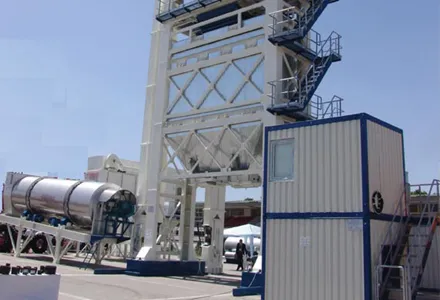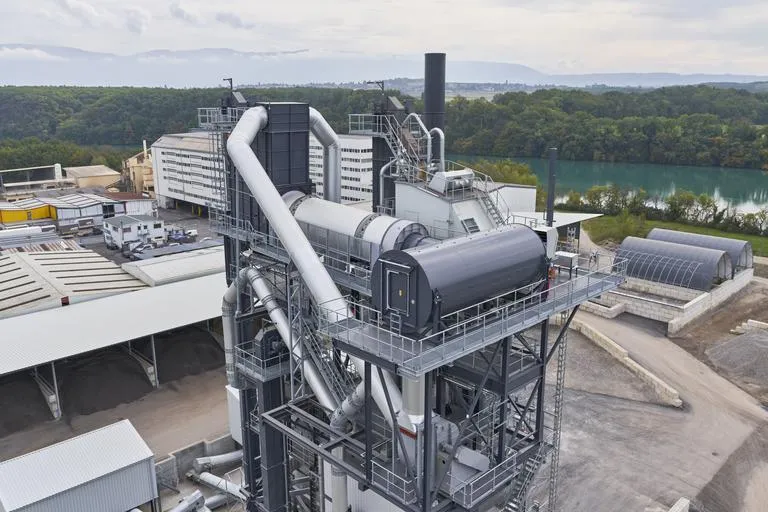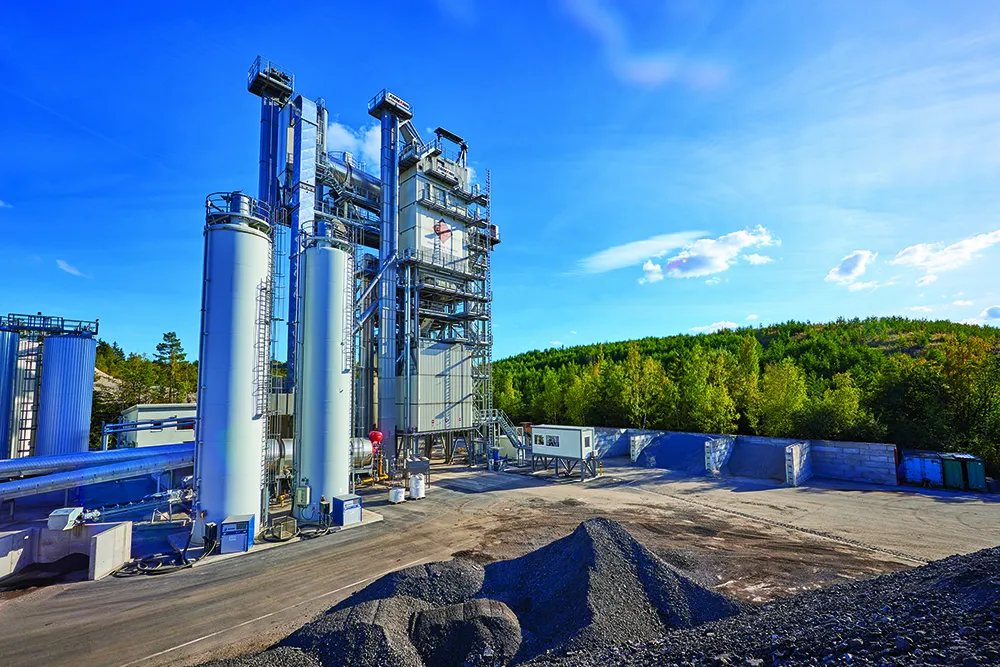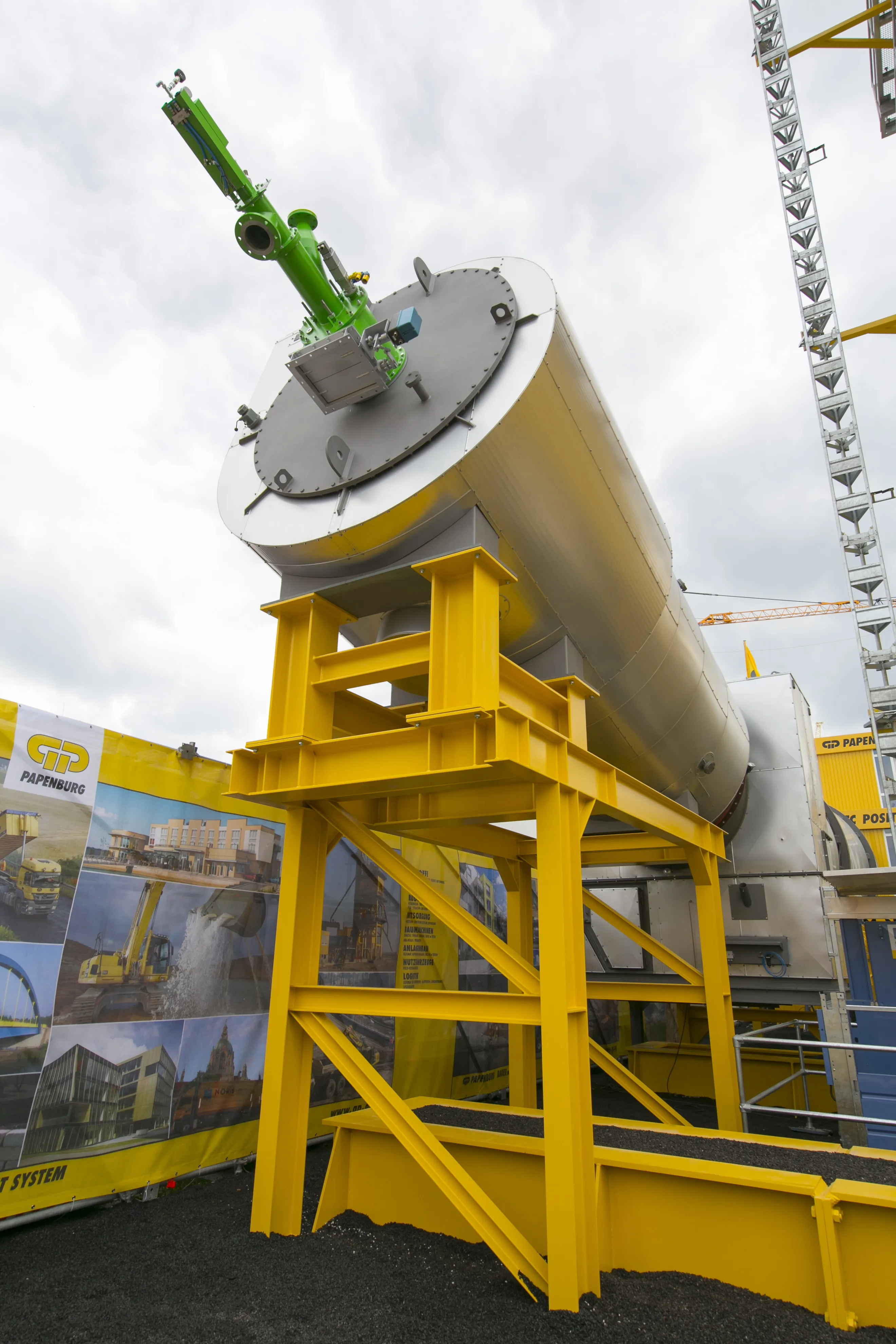Cesan, the Turkey-based supplier of asphalt plants and related products, says it is following a customer-oriented development strategy and anticipating their needs. "By providing customers with quality, delivery, installation, instruction and after-sale services, we are setting high standards and applying advanced technology developing our business," says Çesan. Looking to the environment, Çesan says it produces and manufactures dust collector systems under licence from B.M.D. GARANT.
February 29, 2012
Read time: 4 mins

"By providing customers with quality, delivery, installation, instruction and after-sale services, we are setting high standards and applying advanced technology developing our business," says Çesan.
Looking to the environment, Çesan says it produces and manufactures dust collector systems under licence from B.M.D. GARANT.
"Çesan manufactures asphalt plants, coolers and dust collector systems using the latest technologies, according to world standards, and all our products are environmental friendly. Environmental responsibility is critical to Çesan.
"The company's plants can mix a minimum 15% recycled asphalt pavements (RAP) into the asphalt mix, and by using RAP, natural aggregate resources will be saved and the asphalt binder in the old pavement will be reused at a lower cost than the new asphalt binder," says the company.
"Çesan plants can reduce energy consumption, greenhouse gas emissions and improve efficiencies by reducing fuel consumption at the asphalt plant with its completely self-designed dryer which operates in basic principle heat transfer to the aggregate. For each tonne of asphalt a minimum 1litre of fuel can be saved."
Balama Prima's market aims
Balama Prima Equipment is hoping to develop market share in the asphalt highway construction sector with its latest asphalt mixing plants.The road engineering equipment manufacturer and supplier is based in Hong Kong and has 30 years' experience in manufacture and after-sales service, while its D&G asphalt plant subsidiary is based in the Chinese capital, Beijing.
D&G produces the DG3000 (240tonnes/hr) and DG4000 (320tonnes/hr) asphalt plants. The CK Series of container asphalt mixing plants are its latest products.
Balama Prima's deputy general manager, international division, Frank Xu, said the compact configuration of the CK Series (its four models produce between 100-200tonnes/hr) reduces footprint and adapts for standard container transport.
"All components and structures are designed and manufactured to fit into a standard container. The semi-mobile steel base allows for quick installation and disassembly without the need for foundation fixtures.
"The advanced design provides a roomy services passage and maintenance access, while the ProfiBus control system of the CK series utilises distributing control technology," said Mr Xu.
Benninghoven celebrates with new plant
The company is finishing off the range in its bitumen systems by showing a containerised emulsion plant with a capacity rated at 30tonnes/hr.
Benninghoven, which manufactures equipment such as mobile, containerised and stationary asphalt mixing and recycling plants; process control systems; additive systems, and combination burners and polymer plants, said a lot of interest had been shown during the show due to "the special features installed."
Also new from Benninghoven is a mixing unit, which forms the weighing and mixing section or "heart" of a Concept-type TBA asphalt mixing plant capable of producing 320tonnes/hr.
Concept is the Benninghoven designation for an asphalt plant range that, without compromising output, quality, environment or operation cost efficiency, still affords a high degree of mobility.
The company was also nominated in the
Benninghoven's latest burner development is a combination burner for coal, natural gas and oil. This allows the operating company to always work with the cheapest fuel, said the company.









